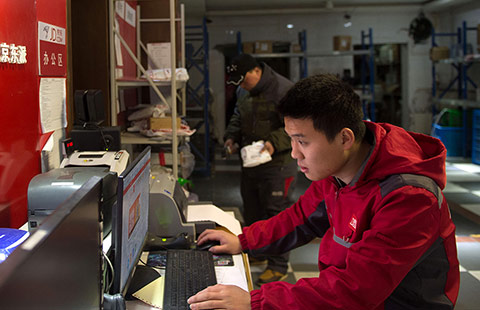Product woes demand more govt supervision
Some consumers spend years pursuing legal action. Even if they win in the end, the whole process was likely costly, and some have even lost their jobs for devoting so much time to their cases, Qiu says.
In sharp contrast with the hefty cost of legal action, compensation levels are too low. According to the CCA, almost 568.43 million yuan in losses was recovered last year. The average consumer compensation was about 1,125 yuan.
Raising punitive compensation in China's legal system has been in demand for years.
"Consumers suffer from high costs when fighting for their rights and compensation levels should be enhanced to better protect them. According to China's Law on the Protection of Consumer Rights and Interests, consumers can only get double the original price of the product or service," says Chen Shu, an NPC deputy and Honorary President of the Guangzhou Lawyers' Association. "Compensation is too low. That's why most companies don't take the regulation seriously."
Zhang Luming, director of the Publicity Department of the Anhui Consumers' Association, echoed Chen's view, adding that a minimum compensation standard should be set.
"Doubling the original price as compensation is far from enough to meet people's expectations. For instance, if a bag of milk is 2 yuan, consumers can get 4 yuan for punitive compensation at most. That's way too little. So there should be a minimum punitive penalty," said Zhang.
Consumers in China are also without the option of a class-action lawsuit, a practice common in the United States and other nations. "In the United States, class-action lawsuits can result in damage compensation and punitive compensation, which are often of large sums of money. This can pose a big deterrent for law-breaking companies." notes a report in the 21st Century Business Herald.
Countless cases show that when confronted with large companies, Chinese consumers are often left to their own devices, which is too time-consuming, daunting and costly.
The lack of a class-action lawsuit system will lead companies to ignore consumer rights, Wang Zongyu, an associate professor in economic law at Renmin University of China told Beijing Review.
Wang said that although China's legal system has terms similar to a class-action lawsuit, the courts are unlikely to support them in practice for fear that the number of cases could spiral out of control.
"China should learn from the United States and introduce a class-action lawsuit system so as to better protect consumers. The system will enable consumers, who are usually in a weak position, to fight against powerful companies, especially mega-sized multinationals."
Major consumer rights infringement cases in 2012
- In February, media reports in Harbin, the capital of Northeast China's Heilongjiang province, stated that the popular drink Red Bull contained ingredients not registered with the then State Food and Drug Administration. The ingredients include sodium benzoate, a preservative, when combined with caffeine, may produce a substance considered an A-class drug for psychiatric treatment. An overdose of the substance could cause headaches, stress, anxiety and addiction.
We recommend
Volkswagen to recall 380,000 cars in China
China demands Volkswagen to recall defective DSG cars
Apple unmoved by repairs complaints
Apple in guarantee scandal in China

















